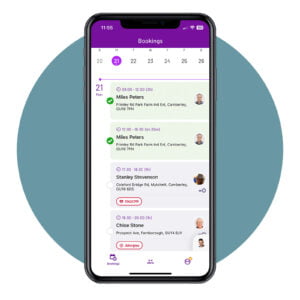In October 2019, the Care Quality Commission (CQC) published its major annual report: the State of Care. This comprehensive and detailed research takes the pulse of the nation’s health and social care sectors, outlining, amongst other things, how services have improved or deteriorated in terms of care quality.
While issuing the usual dire warnings over two sectors at tipping point due to increasing demand, lack of funding and a stretched workforce, the report also takes a look at the challenges the care sector faces in terms of adopting technology.
5 key barriers to Care Technology Adoption
The CQC report outlines 5 key barriers in terms of the adoption of new technology, which are as follows:
- A lack of funding to invest in technology, particularly for small providers
- Low level of knowledge and awareness amongst providers and staff
- Fear of technology replacing personal support
- Perceptions that people using adult social care and not interested in technology
- Concerns about ethical implications and data protection in adopting technology
That a lack of funding is continuing to hold back care providers from the adoption of potentially lifesaving technologies is a national scandal. The fact that health and social care providers continue to trail miserably behind other sectors in terms of technology adoption is well-documented and needs to be addressed urgently through additional government funding.
How to promote technology enabled care solutions
Turning to the lack of knowledge of technology amongst staff, the onus is on care providers to take the bull by the horns and ensure all team members are fully trained and on-board with the latest technologies and are confident about using them. Evidence shows that even those care staff who are initially fearful of technology soon become its greatest advocates when they see the benefits it can bring in terms of making their lives easier by enabling faster and more accurate care recording, and freeing them from onerous paperwork.
While there remain justifiable fears that some aspects of technology can replace personal support, such as robotics and artificial intelligence, the evidence proves the contrary: that the vast majority of technologies successfully enhance personal support by giving back carers more time to spend with residents and providing greater resources to detail and meet the needs of each individual.



Moreover, perceptions that service users are not interested or will respond badly to technology are increasingly misplaced as patients and care home residents, including the elderly, come to see access to WiFi and social media as an indispensable part of daily life. Similarly, fears over potential data protection issues with digital technology indicate an alarming lack of awareness of how technology actually makes personal data infinitely more secure than traditional paper keeping methods. When a care business partners with PASS, the security and confidentiality of their information is maintained as a priority, tackling this concern effectively.
While the CQC is right to share some of the genuine issues blocking the universal adoption of technology in health and social care, the majority of barriers it highlights indicate an alarming and persistently stubborn widespread ignorance about the transformative benefits it can bring. The onus is on the industry, local and national government, and the CQC itself to get the message out there!
Find out more about PASS care planning software, the app that helps you create digital care plans, ensures safe medication management and records care delivery with one easy-to-use app.




